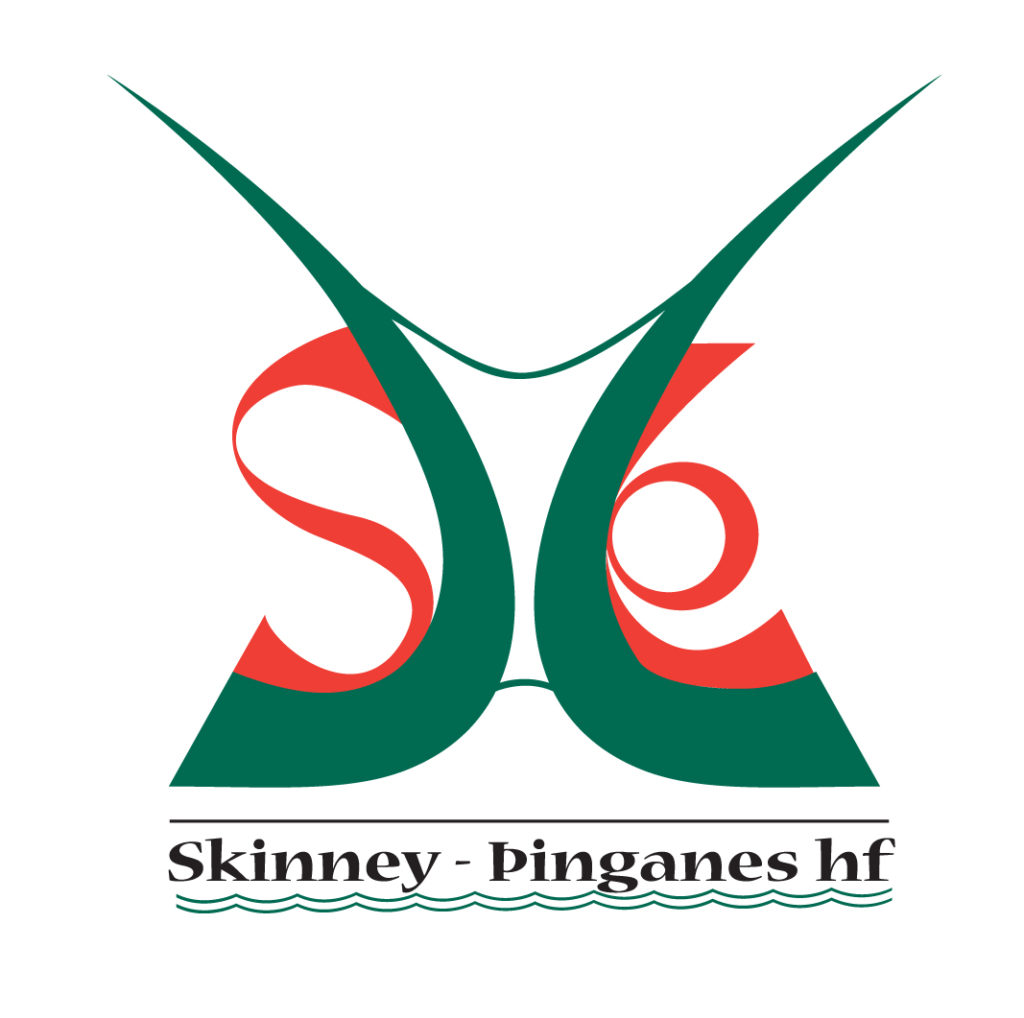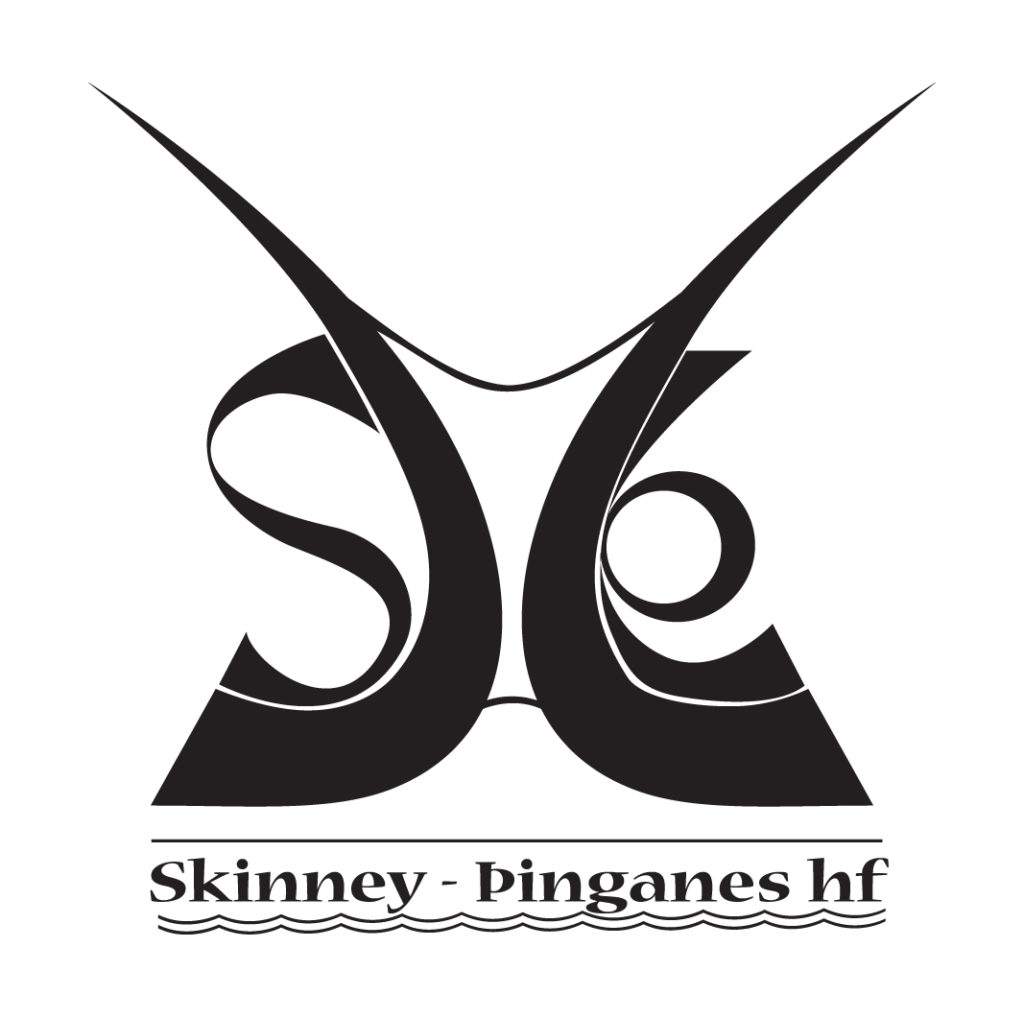OUR STORY
OUR STORY
The Skinney-Thinganes fishing and seafood company came into existence in 1999 with the merger of three companies: Borgey hf., Skinney hf., and Thinganes ehf. Borgey was the oldest of these companies, and the longest surviving fishing operating company in Höfn, which had been formed by the Austur-Skaftafell Co-operative Society, along with about twenty individuals, in the spring of 1946. For many years, Borgey had operated just one seasonal fishing vessel, and later two, but in the mid-1980s, operations were expanded with the purchase of a stern trawler.
A further two seasonal vessels were added to the fleet later, along with another stern trawler. Early in the 1990s, the power and influence of the local Co-operative Society began to wane as did that of many co-operatives all around Iceland, and so Borgey took over all its fishing operations, making it one of the country’s largest fishing companies. It was a hard struggle economically, however, and by the end of 1992 the company’s operations were on the verge of collapse. Borgey was forced to relinquish both of its trawlers along with a large part of its groundfish quota.
After a suspension of payments, composition and refinancing, the company was finally reorganised and proceeded to concentrate on the fishing and processing of herring and capelin. This seemed very promising at first, but operations became increasingly difficult in the years 1997 and 1998 and discussions began concerning a merger with other fishing and investment companies, both in Höfn and other parts of the country. The history of the fishing companies Skinney and Thinganes is a much shorter one that that of Borgey.
Skinney was established in May 1968 and Thinganes four years later. They were both typical, family-owned enterprises like most other fishing companies in Höfn at that time. Both companies operated seasonal fishing vessels, and from 1987 onwards Skinney also engaged in the large-scale salting of fish, the curing, freezing and canning of herring, and the freezing of lobster and capelin. In January 1999 Skinney and Thinganes joined forces and bought the majority of shares in Borgey and on 1 October the same year these three companies were formally merged under the name Skinney-Thinganes.
What led up to this was that Borgey began to struggle in its operations and had been forced to downsize, as has been noted above. After the merger much work was done to streamline and economize the running of the company by, among other things, merging production units and simplifying its administrative system. From its very beginning, Skinney-Thinganes has concentrated on increasing its fishing quotas in order to strengthen the basis of its operations. With this aim, Skinney-Thinganes has bought a few smaller fishing companies and increased collaboration with others in both catching and processing fish. Moreover, many improvements were also made to the company’s processing machinery and equipment, and in addition older fishing vessels were sold and decommissioned and new and more modern and efficient ones bought instead.
Skinney-Thinganes operates a fish salting plant all year round and additionally freezes large quantities of lobster, capelin, mackerel and herring, not to mention the processing of roe, swim-bladders and other additional products. All this provides employment for about 180 people on land, of which 30 are based in Thorlákshöfn, in the southwest of Iceland, where Skinney-Thinganes bought a fishing company in 2006 and merged its operations with those in Höfn. The company also runs fishing gear workshops and a fishmeal factory in Höfn. The fishmeal factory is not least important for its utilising any raw material left over from processing in the freezing plant in Höfn, for long distances make the transport of such produce elsewhere prohibitive.
Skinney-Thinganes currently operates eight fishing vessels with a total of 90 crewmen, thus the company’s total workforce is around 300. Skinney-Thinganes ransk among one of the largest fishing and seafood companies in Iceland. Technical progress and improvements have actually reduced the overall number of manual labour hours, but with expanding activities and investment Skinney-Thinganes has continued to maintain the same number of employees. During the summer months, additional teenagers are also hired, especially for the processing of lobster. Indeed there has been a long tradition of teenagers working in the fish processing over the summer.






